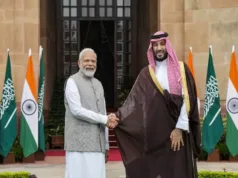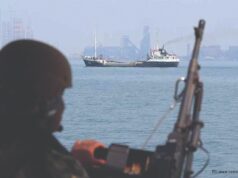New Delhi: Pakistan’s most watched news channel is facing a black-out in most of the areas of the country including Islamabad and Karachi. Geo TV official said it has been “forced off the air” as the channel had become increasingly critical of the military in the past few years.
Interior Minister Ahsan Iqbal said that government did not order the suspension of the channel, but he failed to explain why the channel faces a blackout across the country. Media regulatory authority (PEMRA) of Pakistan also clarified that it “has not issued orders to close down any channel or change its position.” No one gave any order of suspension, it just automatically happened; Authority wants people to believe this sudden disappearance of the channel.
In 2014, Hamid Mir, GEO TV anchor, and journalist was shot in Karachi, after which he accused the Inter-Services Intelligence agency behind the assassination attempt.
The forced closure of Geo TV is seen as a message from the country’s generals that they would accept no negative reporting.
Media scrutiny has become a new normal in recent years. ‘If you want to stop the message, stop messenger’- is the technique being used by those who want to control the information.
Freedom of Press has fallen to the lowest level in last decade, courtesy to murder, legal punishment, forced disappearance, financial threats to journalists and media outlets in major democracies like the US, India, and to further crackdowns on independent media in countries like Russia and China.
The irony of the current scenario is global leaders often support the role of media as the fourth pillar and freedom of expression but the real picture is very different and scary.
According to official database of CPJ, Committee to protect journalists, 76 journalists were killed, 261 were imprisoned in the year 2017. In India only, The Hoot the media watchdog documented 54 reported attacks on journalists, 45 instances of internet shutdowns and 45 cases of sedition in the past 16 months.
India is also not far behind and its ranking is slipping in the press freedom index. It slipped down from 133 in 2016 to 136 in 2017. The murder of journalists in Madhya Pradesh, Maharashtra, Chhattisgarh and popular Kannada journalist Gauri Lankesh has created an atmosphere of fear in journalist fraternity. One day blackout notice against one of the oldest channel of country NDTV, the ordinance passed by Rajasthan CM Vasundhara Raje or latest gag order by I&B Ministry are few examples of governments anti dissent policy.
The position of our neighbors in the press freedom index is not good either. Pakistan ranks at 139 and China at 176. The situation for Journalists working in war-torn areas like Iraq, Syria, and Yemen is far worse.
Even the US is not far behind. No U.S. president in recent memory has shown greater contempt for the press than Trump in his first months in office. He has repeatedly ridiculed reporters as dishonest purveyors of “fake news” and corrupt betrayers of the national interest. Borrowing a term popularized by Soviet leader Joseph Stalin, Trump has labeled the news media as “enemies of the people.” His senior White House adviser described journalists as “the opposition party.”
Such comments suggest hostility towards the fundamental principles and purposes of press freedom, especially the news media’s role in holding governments to account for their words and actions—as opposed to the government holding the media to account.









